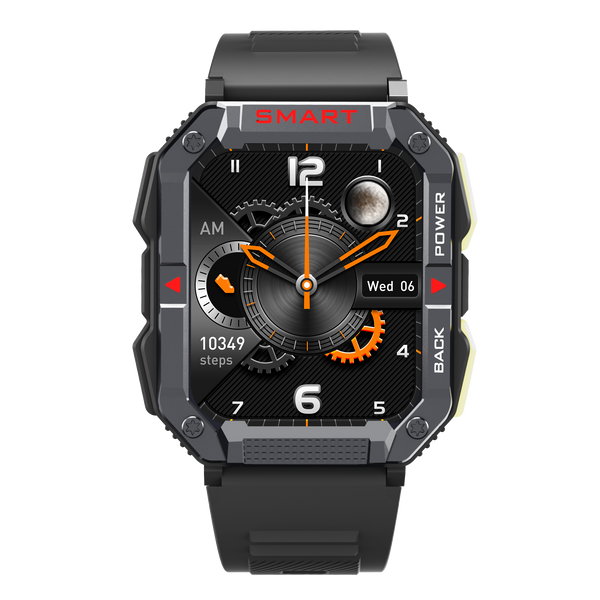Fitness Smart Watches
Embarking on a muscle training journey is an empowering step towards improving your strength, physique, and overall health. However, as you progress in your training, you may find yourself faced with a crucial question: Should you add more resistance (weights) or increase the number of repetitions (reps)? These two approaches can yield different results, and in this blog, we'll explore how to strike the right balance to achieve your specific fitness goals.
Weights: Building Strength and Size
-
Strength Gains: Adding resistance through weights, whether it's dumbbells, barbells, or machines, is a proven method for increasing your strength. Heavier weights challenge your muscles and central nervous system, leading to notable strength gains.
-
Muscle Hypertrophy: If your goal is to build muscle size, incorporating heavier weights with lower reps (around 6-8 reps per set) is effective. This approach creates micro-tears in muscle fibers, prompting them to repair and grow larger.
-
Power Development: Weightlifting is essential for power-based sports like Olympic weightlifting and powerlifting. It enhances explosive strength and speed.
Repetitions: Endurance and Tone
-
Endurance Improvement: Higher repetitions (typically 12-15 reps or more per set) with lighter weights improve muscular endurance. This is valuable for activities that require sustained effort, such as long-distance running or cycling.
-
Toning and Definition: For achieving a lean and toned appearance, focusing on higher reps can be beneficial. It helps you burn calories, reduce body fat, and create muscle definition.
-
Injury Prevention: Lighter weights with more reps can be gentler on your joints and reduce the risk of injury. It's an excellent choice for beginners or those with joint issues.
Finding the Balance
The ideal approach to muscle training depends on your goals:
-
Strength and Size: If you aim to get stronger and bulk up, prioritize heavier weights with lower reps. Compound exercises like squats, deadlifts, and bench presses are excellent choices.
-
Endurance and Definition: For endurance and toning, opt for lighter weights with higher reps. Incorporate exercises that engage multiple muscle groups for an efficient workout.
-
Mix It Up: Periodization is a strategy that involves cycling between different training methods. It can help you reap the benefits of both heavy-weight and high-repetition training while preventing plateaus.
Conclusion: Personalized Progress
Ultimately, whether you should add more resistance or repetitions depends on your individual goals and preferences. Consider working with a fitness trainer or coach to create a personalized plan that aligns with your objectives. Remember that balance is key, and a well-rounded training program may incorporate both approaches at different times to achieve the best results for your unique fitness journey.
Unlock your personalized training journey with the Twellmall Fitness Tracker Smart Watch. Achieve your fitness goals by tracking your resistance and repetition training. Find your perfect balance with Twellmall!













